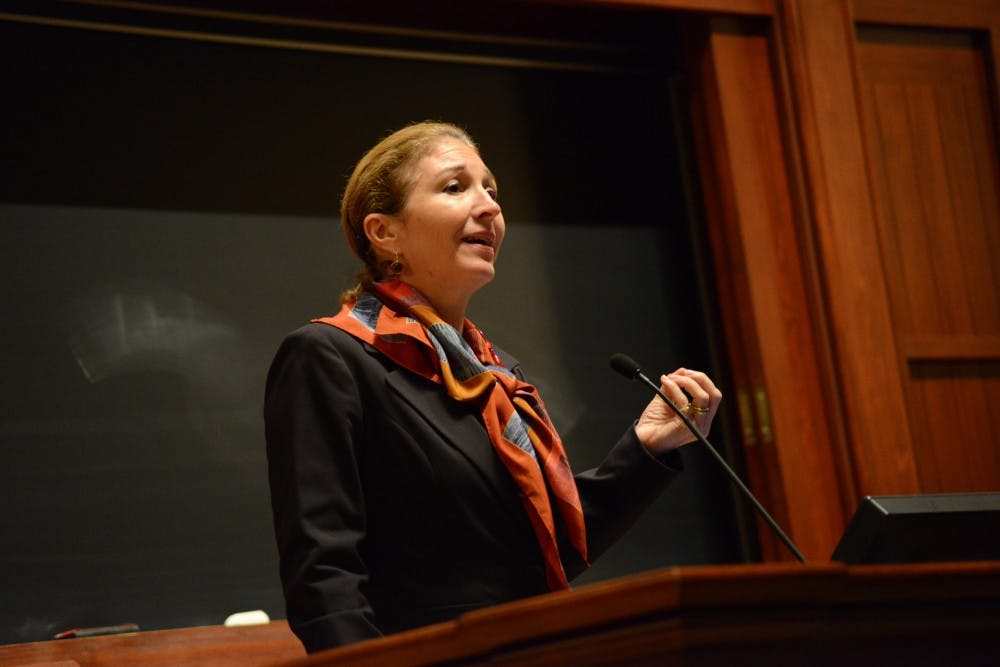More than 200 students got to put a face to a name frequently found in their introductory international relations textbooks last night.
Anne-Marie Slaughter, professor of politics and international affairs at Princeton University, spoke at College Hall about international law and the Responsibility to Protect, or R2P, doctrine.
While Slaughter’s name may spark recent memories of her The Atlantic article on work-family balance, she came to Penn to speak as this year’s Rena and Angelius Anspach lecturer, an annual talk hosted by the Christopher H. Browne Center for International Politics.
R2P states that governments have an obligation to protect their people against instances of war crimes and other crimes against humanity, and that if they cannot do so on their own, the international community has an obligation to intervene.
“What’s revolutionary is that … your sovereignty itself includes an obligation to your people,” Slaughter said about R2P. “And that obligation is pretty minimal — it just says you can’t mass murder them.”
Edward Mansfield, director of the Browne Center, believes Slaughter’s lecture was a great success. Students, faculty and community members occupied nearly every seat of the room in College Hall, and some even stood along the back wall.
The R2P movement, as Slaughter explained, gained momentum exponentially faster than most issues in international law.
While most experts and lawyers in the field think in terms of change over decades or centuries, this idea was first conceived in a book published in 1999, proposed internationally at the 2005 World Summit and was implemented only six years later during conflicts in Libya and Cote d’Ivoire.
Slaughter suggested a number of strategies to help implement this plan.
The United States Treasury, for example, could apply similar strategies used in counter-terrorism efforts to track the monetary trail of potentially dangerous leaders and identify and stop war crimes before they happen.
She also proposed the concept of a United Nations-sponsored website where civilians could upload videos documenting internal conflicts that could be viewed as mass atrocities.
Slaughter mentioned Twitter and international blogs as other ways that people are communicating internationally, even without the help of their governments. “Technology now means that people can make themselves seen and heard,” she said.
The Anspach Lectures organizer and Associate Director of the Undergraduate Political Science Department, professor Eileen Doherty-Sil, said she strives to invite speakers that will interest and engage students. “The idea is that we bring in someone that’s really had an impact on foreign policy and public service and can talk to undergraduates who are thinking about going into similar kinds of professions or activities,” she said.
“It was interesting from an academic standpoint, but I also loved the article she wrote over the summer,” College junior Casey Anderson said.
Doherty-Sil said Slaughter was at the top of the list of speakers she suggested for yesterday’s event because of Slaughter’s work in international relations and students’ familiarity with her. Slaughter’s work is required reading in many introductory international relations classes.



